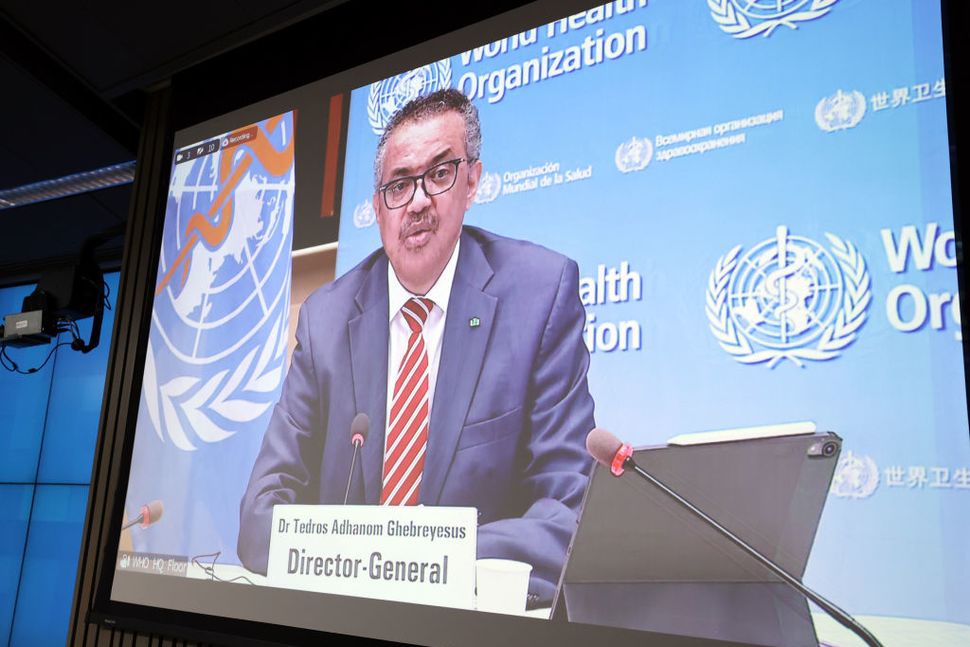[ad_1]
The leader of the World Health Organization on Tuesday said that an international team of experts was not given access to all of the data they wanted surrounding their trip to Wuhan, China, to study the origin of the coronavirus.
“In my discussions with the team, they expressed the difficulties they encountered in accessing raw data,” WHO Director-General Tedros Adhanom Ghebreyesus said at a member states briefing. “I expect future collaborative studies to include more timely and comprehensive data sharing.”
Specifically, he said the team did not have full access to biological samples from September 2019 that could help them understand the earliest cases of COVID-19.
Cartoons on the Coronavirus

WHO expert and lead investigator of the mission Peter Ben Embarek reiterated the issue during a press conference on Tuesday following the release of the study.
“We got access to quite a lot of data in many different areas, but, of course, there are areas where we had difficulties getting down to the raw data,” Embarek said, adding that China has restrictions and privacy laws restraining the sharing of private data to outsiders.
Still, he said that the team had a “very strong, good collaboration with our colleagues in China.”
The study detailed four possible routes of introduction of the virus to humans: transmission directly from an animal source, transmission from an infected intermediate animal host, spread through the trade of frozen products or introduction through a laboratory accident. The intermediate host theory is “likely to very likely” the pathway, according to the study, while the lab theory is an “extremely unlikely pathway.”
But Tedros said that he did not believe the study explored the lab theory enough and added that all hypotheses “remain on the table.”
“Although the team has concluded that a laboratory leak is the least likely hypothesis, this requires further investigation, potentially with additional missions involving specialist experts, which I am ready to deploy,” he said.
Embarek acknowledged that the report did not focus on the lab theory.
“Since this was not the key or main focus of the studies, it did not receive the same depth of attention and work as the other hypotheses, but also because that was the assessment – that it was not where we could see strong indication that that was something we should look into,” he said. “And therefore, it was ranked as the least likely, so to speak, of the four possible pathways. Not saying that it was impossible, but not the one that we would start initially going deeper into and focusing our attention on.”
[ad_2]
